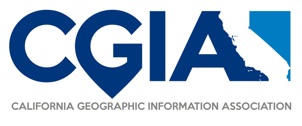1. Redesign and Update CGIA Web Site Content
CGIA will improve its web site to provide clear organization of current purposes, directions, programs, activities, and events. CGIA will continuously update and improve the quality of the web site by designating a webmaster to perform this task on a monthly basis.
2. Increase CGIA Membership by 100%
CGIA is working to double membership during 2005-06 by increasing stakeholder involvement in CGIA programs, activities, and events. During 2005-06, Directors representing each of the nine sectors (federal, state, county, regional, city, education, not-for-profit professional associations, private sector, and public utility organizations) will make regular personal outreach contacts to double the membership of their respective sector. The CGIA membership database will be updated on a monthly basis. Individuals who join CGIA will receive a thank-you confirmation that their membership payment has been received. A monthly CGIA News Flash will be published to keep members and interested stakeholders informed about CGIA activities and upcoming events.
3. Administer Grants Consistent with CGIA's Mission
CGIA is promoting the use of data sharing and distribution policy models and metadata training. Policy forums and workshops will be offered in various parts of the state. Check theStatewide GIS Events Calendar to get more information. CGIA is completing implementation of a FGDC Metadata Outreach Training grant for five regions of the state, to increase the content of geospatial metadata within the CERES Metadata catalog; Ms. Mary Tsui is the Principal Investigator. CGIA is also completing implementation of an FGDC Institution Building and Coordination grant. This initiative presents a model policy for geographic data distribution that agencies are encouraged to consider and adapt to their needs. This initiative builds on the Open Data Consortium Project that developed the model policy; Mr. Bruce Joffe is the Principal Investigator.
4. Improve Coordination among Public, Private, and Non-profit Sector Organizations
CGIA will work with the California GIS Council, NSGIC, and FGDC to promote the "Fifty States Initiative." The Fifty States Initiative outlines organizational changes and strategies in the way governments work together to build the National Spatial Data Infrastructure (NSDI). The new approach emphasizes strategic and business planning which targets grants, incentives, and performance measures.
5. Facilitate Coordination for the California GIS CouncilÂ
CGIA supports two-way communications with the California GIS Council (CGC), providing input to the Council on important policy and strategy issues and disseminating CGC information to the regional collaboratives and the CGIA membership. During 2005-06, CGIA is working to facilitate regional policy forums that will define specific regional challenges and problems that have statewide implications, identify alternatives, and create action plans for resolution of the priority concerns.
6. Facilitate Collaboration with Regional GIS CollaborativesÂ
CGIA continues to facilitate communication among established regional GIS collaboratives to foster effective regional coordination, inter-region communication, and to address statewide GIS program needs. On behalf of the California GIS Council, CGIA is working to foster collaboration between regional councils and the California GIS Council. CGIA is hosting quarterly telephone conference and policy forums to accomplish this initiative, as well as CGIA member attendance at RGC meetings where possible. CGIA has assigned a Board member to be the communication liaison for each regional collaborative.
7. Provide Programs that Meet the Needs of the GIS Community
CGIA has been engaged in a membership-driven strategy for the past several years. During 2005-06, the CGIA Board has created a programs committee to focus on promoting four policy forums within the various regions of the state. The goal of these policy forums will be to identify problems, develop an assessment of alternatives, and facilitate the development of potential actions that can be taken at the local, county, regional, and statewide level to respond to identified policy challenges. CGIA is facilitating the organization of these events with leadership from regional collaboratives, participation from the California's URISA Chapters, and at least one education institution stakeholder (Community College, State University, or University of California Campus). CGIA is working with the CALGIS Program Committee to host a policy forum at the 2006 CALGIS Conference in Santa Barbara, to be held on April 5th, 6th, and 7th.
8. Partner with CERES and California GIS Council to develop a geospatial data plan for California
CGIA would work closely with CERES and the GIS Council to engage local and regional interests in the development of a geospatial data plan -- bringing focus to its other outreach, coordination, and communication initiatives. Approximately $19,992 is available from a CAP Grant and another $10,000 is being contributed by USGS to help fund this effort, for a total of $29,992. The principal objective is to design and implement a repeatable process for assessing the geospatial data needs of California's GIS community. This product of this initiative will include an implementation plan with specific roles and responsibilities, funding and/or partnering strategies, data development priorities, budget, and schedule. John Ellison and Ray McDowell are the principal investigators.

You must log in to post a comment.